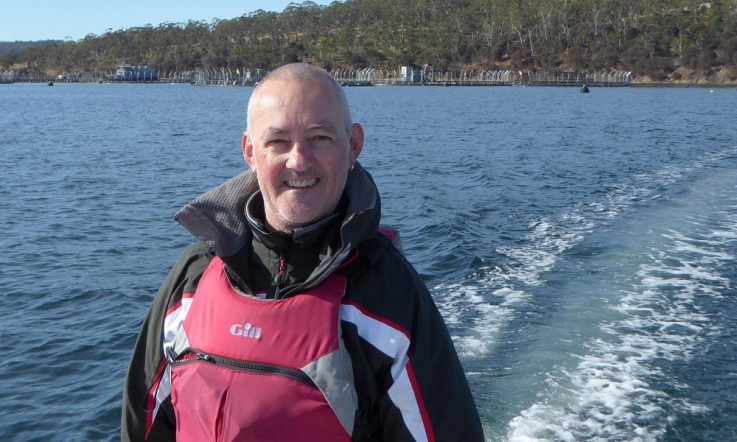At some point in our lives, we've all been asked the question: what do you want to be when you grow up? As teachers, we've probably also asked this question of many students. Choosing a career path is one of the most important decisions we make in our lives – yet this decision is rarely easy or straightforward.
New research from the Teachers and Teaching Research Centre at the University of Newcastle has shed light on how young people come up with answers to the question, examining the crucial period when their ideas about the future start to take shape. Over the course of seven years (2012-18), the team collected survey and interview data from more than 15 000 students, parents/carers, and teachers across New South Wales in order to understand the formation of occupational and educational aspirations, providing one of the largest studies to date on this significant topic.
Results at a glance
Given Australia's position as a ‘sporting nation', it is not surprising that sportsperson was the most popular career aspiration among students. Other popular occupations are also highly familiar to young people – teacher, veterinarian, actor/entertainer, and animal attendant/trainer. On the other hand, reflecting the idea ‘you can't be what you can't see', some occupations were never named.
Occupational aspirations remain highly gendered (Gore, Holmes, et al., 2017). More boys aspire to careers in engineering, policing, and the defence force. In comparison, more girls are interested in nursing, the arts, animal welfare, and teaching. Worryingly, these findings signal the perpetuation of gender stereotypes and current workforce participation patterns.
Indigenous and non-Indigenous students aspire to similar occupations. However, high-achieving Indigenous students are significantly less likely to want to go to university than their high-achieving non-Indigenous peers. This means that we must not only consider the possibility of higher education for young Indigenous students, but also the desirability of this pathway as a place where they want to pursue and attain their career goals (Gore, Patfield, et al., 2017).
While we often hear about the need to ‘raise' young people's aspirations, university is the most desired post-school educational destination across demographic categories. Of the young people who indicated an educational aspiration, 66 per cent aspire to a university pathway, with TAFE being next in popularity (18 per cent), followed by high school (16 per cent). These findings demonstrate a significant gap between the aspirations of young people and the proportion who end up pursing a university pathway. They also reflect the significant decline in interest in TAFE recently reported in the media.
Almost one quarter of students are unsure of their educational aspirations. Increasingly, young people are confronted with a wealth of information about their post-school futures, including reassurance that the path to a particular career can often be achieved via different means; such as the recent development of Bachelor-level degrees offered at TAFE. It is not surprising that many young people do not know what educational pathway they should, or want to, take.
Implications for educators
Teachers and schools leaders play an important role in shaping and nurturing the aspirations of young people. However, in the context of a burgeoning range of programs designed to build awareness of post-school pathways – such as outreach initiatives implemented by universities and government-led funding interventions – the everyday role of teachers has largely been overlooked.
Our research highlights how schools and teachers can open up future pathways and help young people to keep their options open.
To support teachers in understanding and nurturing students' occupational and educational aspirations, the Teachers and Teaching Research Centre has developed a free, accredited professional development course.
The course, Aspirations: Supporting students' futures, is comprised of a suite of digital resources, videos, interactive activities, data, and links to readings and further information, in a self-paced, online environment. Teachers participating in the course will have the opportunity to: learn about key concepts for talking about aspirations with students, parents/carers, and colleagues; examine trends in aspirations for different educational and career pathways; explore key factors that influence aspirations; and, consider the powerful role of schools and teachers in shaping and nurturing students' futures.
As part of our ongoing research into aspirations, the course was trialed and evaluated in 2018 by teachers across all states and territories and in all sectors. Teachers strongly endorsed the course, both in form and substance, reporting impact on their knowledge, beliefs, attitudes, and dispositions. In particular, 94 per cent of participants planned to incorporate what they learned into their teaching and 90 per cent reported an increased understanding of strategies to support students' aspirations.
Educators wishing to enrol in the free course should visit www.aspirations.edu.au.
References
Gore, J., Holmes, K., Smith, M., Fray, L., McElduff, P., Weaver, N., & Wallington, C. (2017). Unpacking the career aspirations of Australian school students: Towards an evidence base for university equity initiatives in schools. Higher Education Research & Development, 36, 1383–1400. doi:10.1080/07294360.2017.1325847
Gore, J., Patfield, S., Holmes, K., Smith, M., Lloyd, A., Gruppetta, M., . . . Fray, L. (2017). When higher education is possible but not desirable: Widening participation and the aspirations of Australian Indigenous school students. Australian Journal of Education, 61, 164–183. doi:10.1177/0004944117710841
Think about your own students. Are you aware of their occupational and educational aspirations? How do you nurture these aspirations?
Are students at your school introduced to a wide range of careers and study options? Do you discuss the pathways students can pursue to reach certain career goals?



